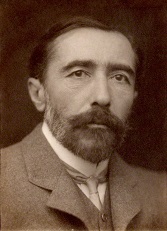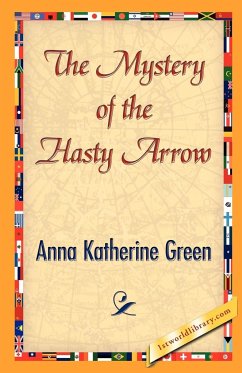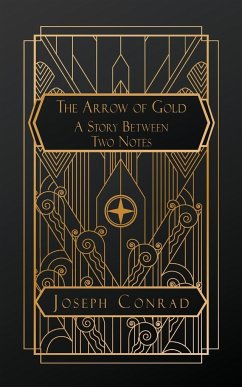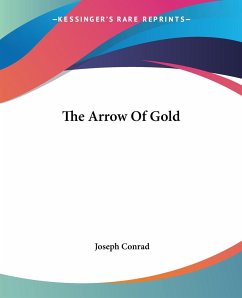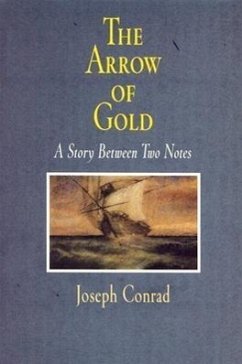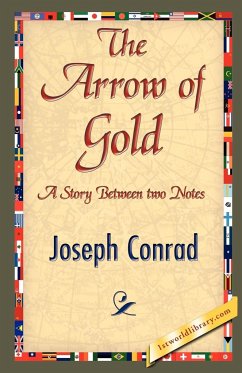
The Arrow of Gold
Versandkostenfrei!
Versandfertig in 1-2 Wochen
18,99 €
inkl. MwSt.

PAYBACK Punkte
9 °P sammeln!
Certain streets have an atmosphere of their own, a sort of universal fame and the particular affection of their citizens. One of such streets is the Cannebiere, and the jest: "If Paris had a Cannebiere it would be a little Marseilles" is the jocular expression of municipal pride. I, too, I have been under the spell. For me it has been a street leading into the unknown. There was a part of it where one could see as many as five big cafes in a resplendent row. That evening I strolled into one of them. It was by no means full. It looked deserted, in fact, festal and overlighted, but cheerful. The...
Certain streets have an atmosphere of their own, a sort of universal fame and the particular affection of their citizens. One of such streets is the Cannebiere, and the jest: "If Paris had a Cannebiere it would be a little Marseilles" is the jocular expression of municipal pride. I, too, I have been under the spell. For me it has been a street leading into the unknown. There was a part of it where one could see as many as five big cafes in a resplendent row. That evening I strolled into one of them. It was by no means full. It looked deserted, in fact, festal and overlighted, but cheerful. The wonderful street was distinctly cold (it was an evening of carnival), I was very idle, and I was feeling a little lonely. So I went in and sat down. The carnival time was drawing to an end. Everybody, high and low, was anxious to have the last fling. Companies of masks with linked arms and whooping like red Indians swept the streets in crazy rushes while gusts of cold mistral swayed the gas lights as far as the eye could reach. There was a touch of bedlam in all this.





